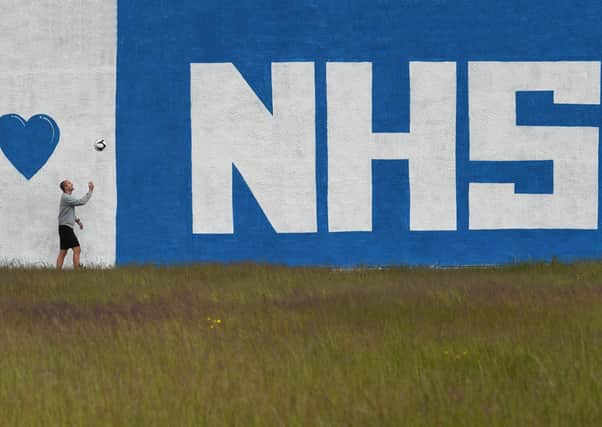Scotland’s health service begins to ease out of lockdown


Patients should be aware that their experience will look and feel different, and may take longer due to ongoing measures to ensure safety such as reduced numbers in waiting rooms, additional cleaning and widespread use of personal protective equipment.
Beginning on Wednesday, July 1, the NHS Golden Jubilee Hospital in Clydebank will resume elective ophthalmology, orthopaedics, cardiac surgery and cardiology based on clinical priority. This is in addition to urgent cancer, heart and lung services including transplants which have not been interrupted by the lockdown.
Advertisement
Hide AdAdvertisement
Hide AdScotland’s Health Secretary Jeane Freeman said: “Throughout the Covid-19 pandemic NHS Scotland has remained open continuing to provide emergency, urgent, cancer and maternity care, support for social care and maintained Covid-19 capacity and resilience.
“Thanks to the efforts of our health care staff and to all of us for continuing to follow public health advice, we have been able to protect our health service and provide the urgent care required to combat the virus.
“The Scottish Government is working with Health Boards to ensure the safe resumption of paused NHS services.
“We are doing this incrementally to ensure we prioritise patient and staff safety, whilst retaining capacity to treat Covid-19 in our health service, but good progress is being made.
Advertisement
Hide AdAdvertisement
Hide Ad“Patients should not expect to see all NHS services resumed immediately as it will take time ensure physical distancing and other safety measures are in place to protect patients and staff.
“The NHS does not exist in isolation. The ongoing development of these plans needs to be founded on a whole health and care system approach, which involves primary and community care, and engagement with clinical partners, service delivery partners, local authorities and patients.
“As we go forward, our Test and Protect strategy will also be crucial to help break the chains of transmission as lockdown restrictions slowly change. I want to reassure you that we are taking these precautions so that we can safely offer the right care, at the right time, in the right place.”
National clinical director Jason Leitch added: “The reality is coronavirus is likely to be with us for some time to come and as we move to restart paused services, we have had to review how we deliver those services to ensure patients both get the treatment they require but also that staff and patients are safe.
Advertisement
Hide AdAdvertisement
Hide Ad“This work takes time and in some cases will mean that how patients access services will look and feel different.
“We would ask the public to keep using NHS Inform as their first source for reliable health information. Community pharmacies remain a widely available resource for minor ailments and General Practice teams are fully available.”
Other services being restarted under Phase 2 include urgent referrals and triage of specialities such as cardiology, urology, trauma and orthopaedics.
Suspended GP services will also gradually be reintroduced, while in the meantime most surgeries are using a telephone triage system to guide patients to the right person.
Advertisement
Hide AdAdvertisement
Hide AdDental practices have now repoened for patients in need of urgent attention and this capacity will be increased over time.
Next Monday (June 29) will see the return of some screening and diagnostic services such as endoscopies, while opticians will be able to offer appointments to people in need of emergency and essential help.
From Monday, July 6, some chronic disease management services helping people deal with issues such as pain or diabetes will be gradually reintroduced.
Comment Guidelines
National World encourages reader discussion on our stories. User feedback, insights and back-and-forth exchanges add a rich layer of context to reporting. Please review our Community Guidelines before commenting.